荘子とビートルズ。
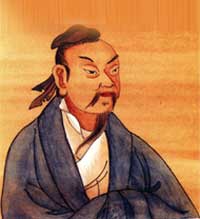
今日は大物。荘子とビートルズについて。
ビートルズって、東洋思想に傾斜したのは知っていても、なんとなくインド?というイメージばかりが先行していまして、ビートルズが老荘思想の影響を受けていたことについて、あんまり指摘していないんですよね。だいたい、オンタイムでビートルズに触れた世代が、真剣に彼らの思想の源泉を探らなかったというのが、おかしいですよ。
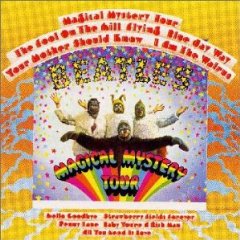
「マジカル・ミステリー・ツアー(Magical Mystery Tour 1967)」って、『老子』や『荘子』の言葉が引用されているものがふんだんにあります。
例えば、『老子』の第二十章です。
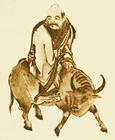
『學無憂、唯之與阿、相去幾何?善之與惡、相去若何?人之所畏、不可不畏。荒兮其未央哉。衆人熙熙、如享太牢、如春登臺。我獨怕兮其未兆。如嬰兒之未孩。??兮若無所歸。衆人皆有餘、而我獨若遺。我愚人之心也哉。沌沌兮、俗人昭昭、我獨若昏。俗人察察、我獨悶悶。澹兮其若海、飂兮若無止、衆人皆有以、而我獨頑似鄙。我獨異於人、而貴食母。』(『老子道徳経』第二十章)
・・・「我独り愚人の心かな」以下の英訳をするとこんな感じになるそうです。
"I am a fool. Oh, yes! I am confused.
Others are clear and bright,
But I alone am dim and weak.
Others are sharp and clever,
But I alone am dull and stupid.
Oh, I drift like the waves of the sea,
Without direction, like the restless wind.
Everyone else is busy,
But I alone am aimless and depressed.
I am different.
I am nourished by the great mother."
参照:Chapter 20 Tao Te Ching
http://www.egreenway.com/taoism/ttclz20.htm
この第二十章というのは、世俗から抜け出した老子の境涯についての独白が綴られております。ユングの自伝の最後もこの『老子』の第二十章です。
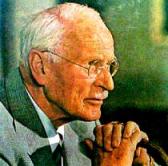
≪老子が「俗人昭昭、我独り昏のごとし」というとき、それは私が今、年老いて感ずることを表している。老子は高い洞察を得た人の典型であり、価値と無価値を見、経験した人である。そして、生涯の終わりにおいて、彼自身の存在、知ることのできない永遠の意味へ戻ろうとした人である。全てを知った老人の原型は永遠に真実である。このような型は、どのような知能の程度においても現われ、それが年老いた百姓であろうと、老子のような偉大な哲学者であろうと、特徴は常に同じである。それは、老年と極限である。しかし、そこには私を満たすあまりにも多くのものがる。すなわち、植物、動物、雲、昼と夜、そして、人間の永遠性。自分自身に対して不確かさを感ずれば感ずるほど、これら全てのものに対する親密性が私の中に育ってきた。実際、私を外界から離別していた疎外性が、私の内界へと転移され、私自身に対する思いがけない無知を、明らかにされたように思えるのである。≫(『ユング自伝』追想より)
“Day after day, alone on a hill
The man with the foolish grin
Is keeping perfectly still
But nobody wants to know him
They can see that he's just a fool
As he never gives an answer”
来る日も来る日も丘の上でただひとり
からからと笑うその男は
身じろぎひとつせずそこにいる
人々は男に興味を示さない
ただの愚か者にしか見えないから
彼は何の答えも示さないから
この第二十章は、“The Fool on the Hill”や“Mother nature's son”の元ネタだと思われます。もうちょっと細かい対比はいずれやります。“Fool on the hill”は、ポールがマハリシのような導師(グル)をイメージしたと言っているんですが、言葉そのものはヒンディーというよりは老荘思想の割合が高いです。
参照:The Beatles - The Fool On The Hill - Remastered
http://www.youtube.com/watch?v=Tg1k_G6fRpQ
The Beatles - Mother Nature's Son (2009 Stereo Remaster)
http://www.youtube.com/watch?v=8rRCxRfpQk8
The Fool on the Hill
http://en.wikipedia.org/wiki/The_Fool_on_the_Hill
『荘子』以外にないだろうと思われるのが、
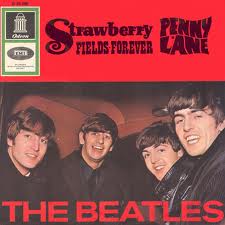
1967年に両A面シングルで出た“Strawberry Fields Forever ”と“Penny Lane”です。「ストロベリー・フィールズ」という名前は、ジョンが子供の頃に遊び場にしていた孤児院のこと、「ペニー・レイン」というのは、同じくリヴァプールの通りの前でして、テーマが「郷愁」ということで一致しています。日本人の情緒にも通じるものなので、作品の完成度もさることながら、感覚的に好まれる作品ですよね。
“Let me take you down,
'cause I'm going to Strawberry Fields
Nothing is real and nothing to get hung about
Strawberry Fields forever”
・・Nothing is real and nothing to get hung about.(何も現実ではなく、何物にもとらわれない)とありますね。
“No one I think is in my tree
I mean it must be high or low
That is, you can't you know tune in but it's all right
That is, I think it's not too bad”
(僕と同じ木にいる人はいないようだ。高いか低いかなんて、合わせることはできないよ。いいじゃないか。悪くないよ。)
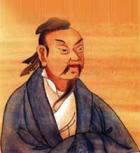
莊子曰「今子有大樹、患其無用、何不樹之於無何有之郷、廣莫之野、彷徨乎無為其側、逍遙乎寢臥其下?不夭斤斧、物無害者、無所可用、安所困苦哉。」(『荘子』逍遥遊 第一)
→荘子は言った。「あなたはせっかく大きな木を持っているのに、役に立たないなどと嘆いている。ならば、この役に立たない木を『無何有の郷』に植え替えて、広々とした大地でその木の周りをぼんやりと逍遥し、のんびり昼寝でもしたらどうだい?斧で切り落とされる心配もなく、無用なもののようでいても、少しも困ることはないよ。」
荘子の冒頭、逍遥遊篇に「無何有の郷(むかゆうのきょう)」とあります。「何も有る物がない」、すなわち手付かずの大地という荘子の理想郷です。「ストロベリー・フィールズとはどこか?」との問いに、ジョンも「架空の場所だ」と証言していまして、荘子と一致するんです。もともと、『ジョンの魂』のジャケットにも大樹のそばで昼寝するものを使っていますが、これは、荘子と同じでしょ?

『予惡乎知説生之非惑邪。予惡乎知惡死之非弱喪而不知歸者邪。』(「荘子」斉物論第二)
→生きることだけを喜びとするようなことを、私は人の迷いではないと言うことができない。逆に、人間が死を憎んでばかりいるのは、旅人が故郷に帰ることを忘れるということに似てはいまいか?
『老子曰「向吾見若眉睫之間、吾因以得汝矣、今汝又言而信之。若規規然若喪父母、掲竿而求諸海也。女亡人哉。惘惘乎汝欲反汝情性而無由入、可憐哉。」』(『荘子』庚桑楚第二十三)
→(中略)お前はあたふたとして、まるで、大きな海原に棹を立てて、失った父母を必死に捜し求める子供のようだ。お前は帰るべき場所を失ったのだな。己を見失って、その場所の入り口も分からなくなってしまったのだ。哀れなことだ。
・・・故郷というのは、『荘子』を読む上で非常に重要な言葉です。同時に複雑な家庭環境で育ったジョンやポールが老荘思想に惹かれる点に不思議はないです。特に「ストロベリー・フィールズ・フォーエヴァー」は、『荘子』の逍遙遊篇と、斉物論篇との親和性が高いです。
“Always, no, sometimes, think its me
But, you know, I know when its a dream
I think, er, no, I mean, er, yes, but its all wrong
That is, I think I disagree”
(いつも、いや、時々思うよ。でも、これは夢の中だと分かるときがあるよ。つまり、「Yes」と言っているのが実は間違いで・・実は僕は「同意していない」ことだと思うよ。)
・・・ここで、夢が出てきます。老子には夢は出てきません。『鏡の国のアリス』の最終章「どっちが夢を?」でも読めるし「ウォラス」や「グラス・オニオン」にも関連するので、アリスと関連づけるのも分かりますが、老荘思想からだと違うコードが浮かび上がってきます。

『謂和之以天倪?曰是不是、然不然。是若果是也、則是之異乎不是也亦無辯。然若果然也、則然之異乎不然也亦無辯。化聲之相待、若其不相待。和之以天倪、因之以曼衍、所以窮年也。忘年忘義、振於無竟、故寓諸無竟。』(『荘子』斉物論 第二)
→天倪によって天の調和を保つとはどういうことだろうか。一方の立場から是といえることは、他方からは不是とも言える、一方でこうだろうと推測しても、他方ではちがうだろうと推測できる。対象となる是が唯一無二の是ならば、是と不是の議論は無用。対象となる然が唯一無二の然ならば、然と不然の議論は無用となる。天のはたらきに身を委ね、時の流れや是非の判断を忘れ、無限の世界に巡らせる。昔の聖人はそのために無の境地に達する。

「夢飲酒者、旦而哭泣。夢哭泣者、旦而田獵。方其夢也、不知其夢也。夢之中又占其夢焉、覺而後知其夢也。且有大覺而後知此其大夢也、而愚者自以為覺、竊竊然知之。君乎、牧乎、固哉。丘也與女、皆夢也、予謂女夢、亦夢也。」(『荘子』斉物論 第二)
→夢の中で酒を飲んでいた者が、目覚めてから「あれは夢だったのか」と泣いた。夢の中で泣いていた者が、夢のことを忘れてさっさと狩りに行ってしまった。夢の中ではそれが夢であることはわからず、夢の中で夢占いをする人すらある。目が覚めてから、ああ、あれは夢だったのかと気付くものだ。大いなる目覚めがあってこそ、大いなる夢の存在に気付く。愚か者は自ら目覚めたとは大はしゃぎして、あの人は立派だ、あの人はつまらないなどとまくし立てているが、孔子だって、あなただって、皆、夢の中にいるのだ。そういう私ですら、また、夢の中にいるのだがね。
参照:The Beatles - Strawberry Fields Forever
http://www.youtube.com/watch?v=cG2gNvqGJVU
Wikipedia Strawberry Fields Forever
http://en.wikipedia.org/wiki/Strawberry_Fields_Forever
今日はこの辺で。
ジャンル別一覧
人気のクチコミテーマ
-
-

- この秋読んだイチオシ本・漫画
- 無料で使える動画・漫画サイトの一覧
- (2025-02-20 02:37:56)
-
-
-

- 本のある暮らし
- 吉沢久子「100歳の生きじたく」/肉ま…
- (2025-02-22 05:18:11)
-
-
-
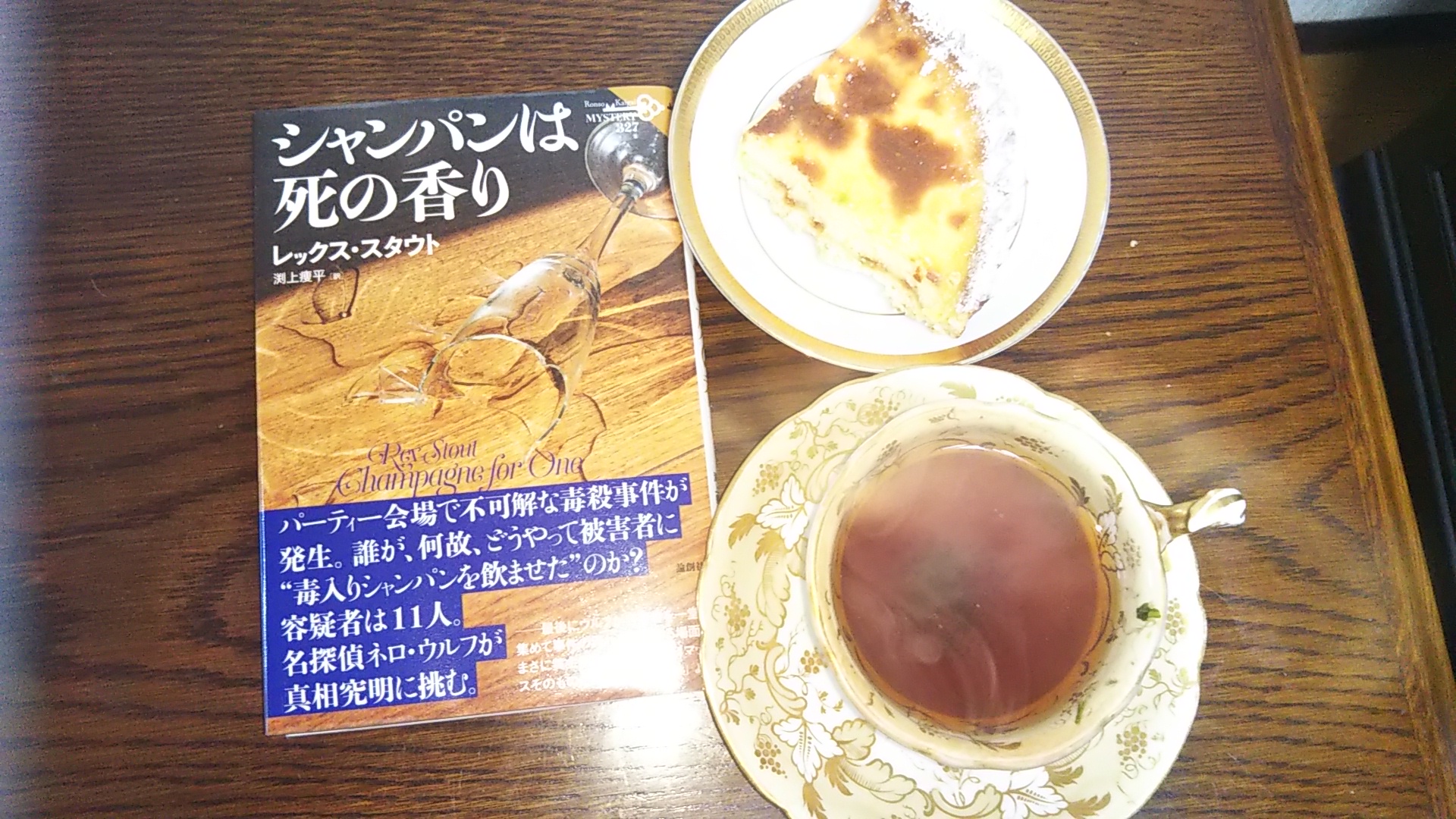
- ミステリはお好き?
- シャンパンは死の香り
- (2025-02-23 21:26:45)
-
© Rakuten Group, Inc.



